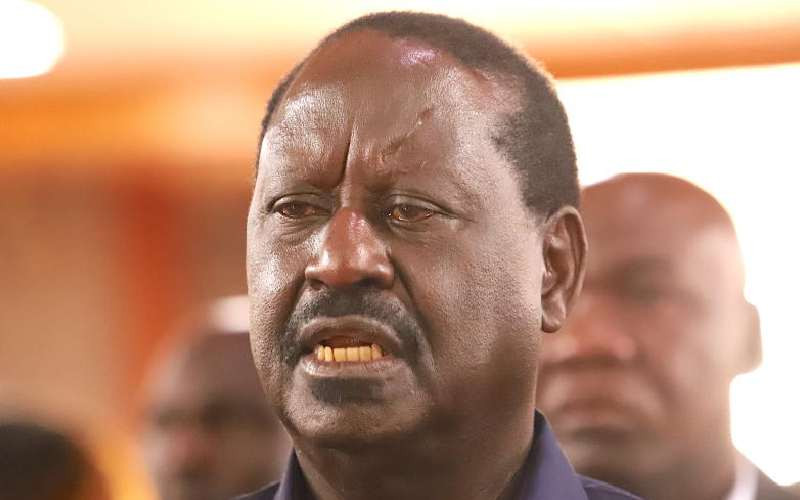×
The Standard e-Paper
Join Thousands Daily

Raila Odinga has missed out on being elected as Kenya's fifth president on his fifth attempt at the presidency following a narrow loss to his closest rival and once political ally William Ruto.
Raila had set out to take over from President Uhuru Kenyatta, whom he contested against in the two previous elections before mending fences following a convergence of interests after the acrimonious election in 2017.